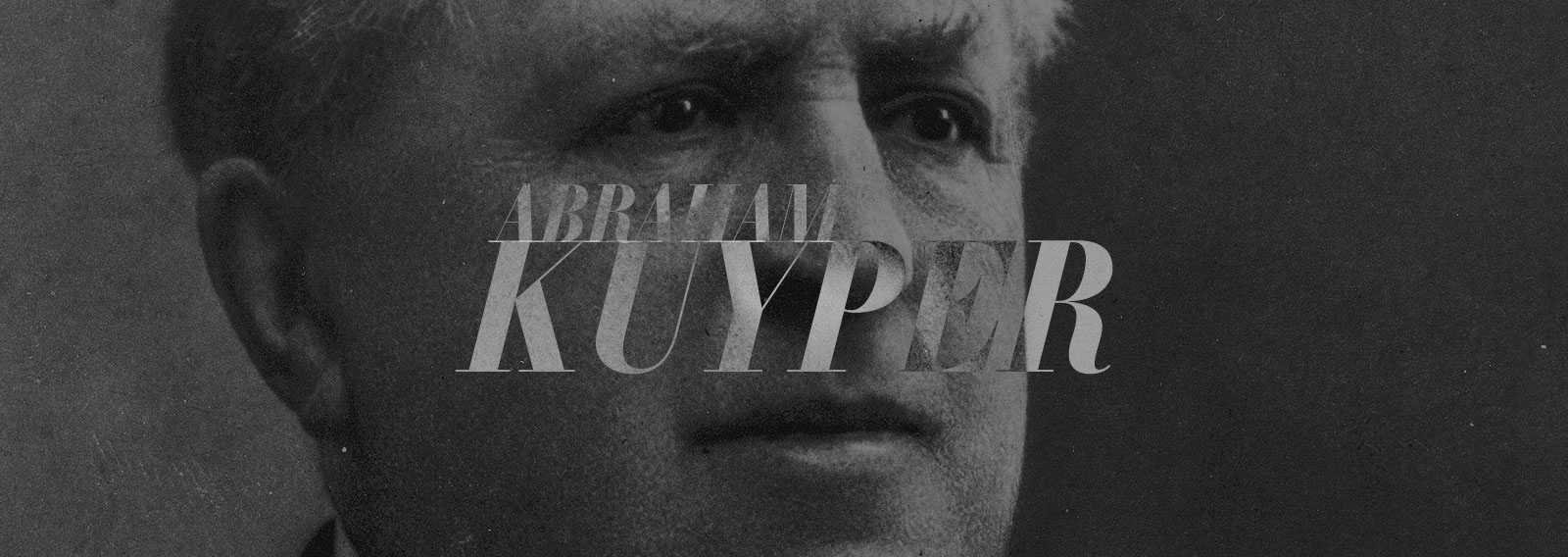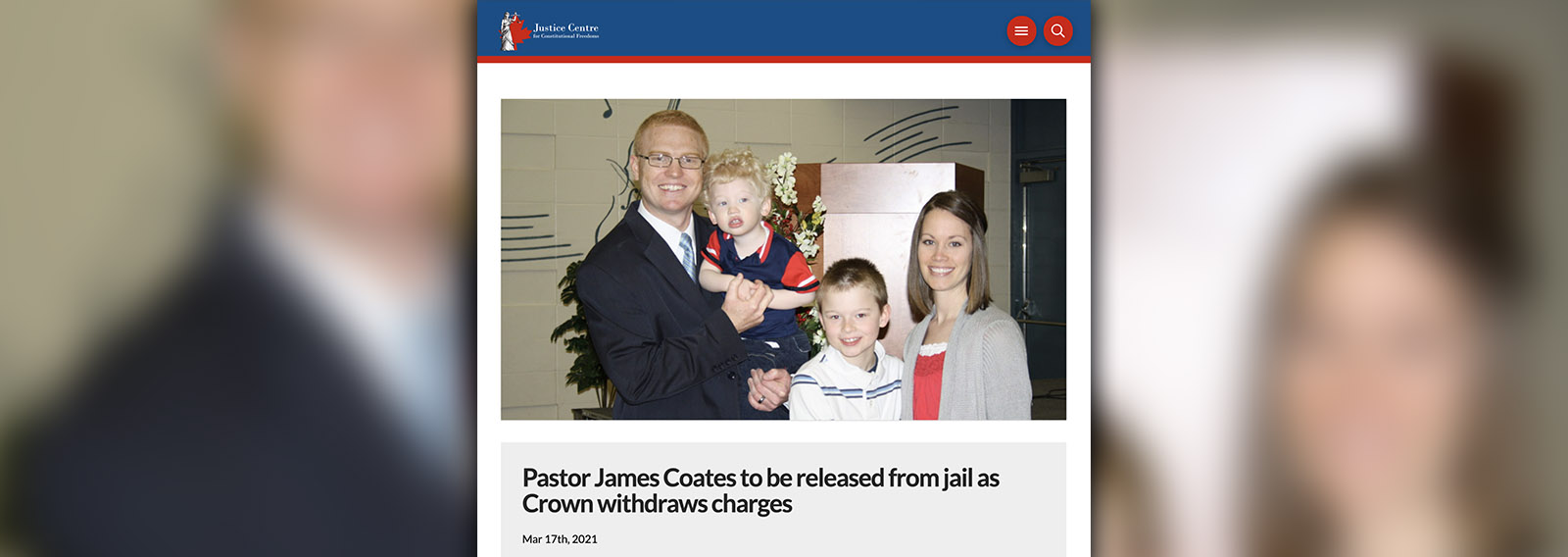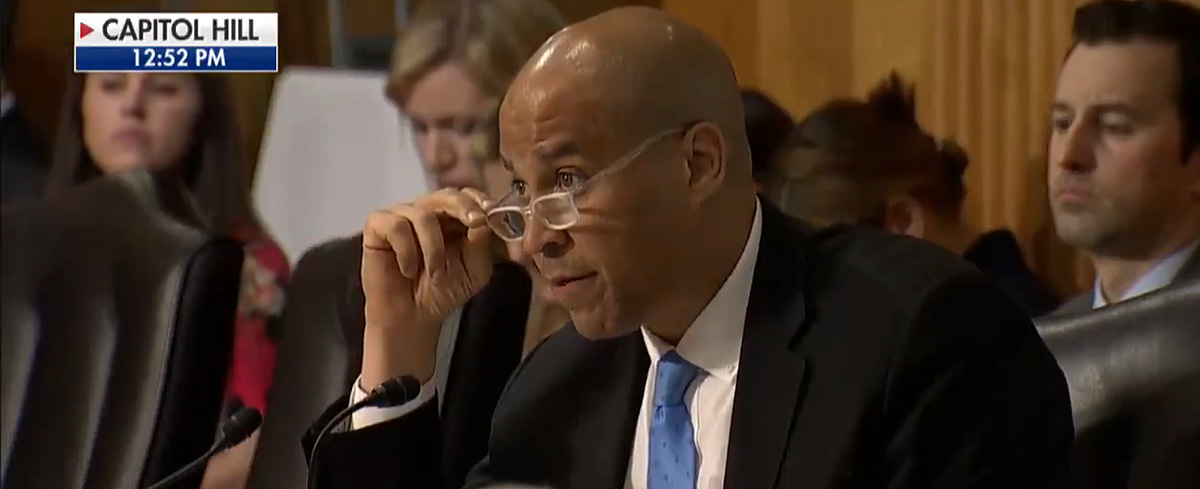As someone who formed the Anti-Revolutionary Party (ARP), Abraham Kuyper may not seem like a good candidate to be included in a list of those who warned about Statism and argued for the need to resist the state when it oversteps its boundaries. But as will be seen, Kuyper certainly does fit in here.
First a bit of background on the man. He was a pastor, a politician, a Prime Minister of the Netherlands, a theologian, a newspaper editor, a devotional writer, and an educator, among other things. His driving conviction was to see the Lordship of Christ extend to every area of life.
Or as he famously once said, commenting on Psalm 24:1, “In the total expanse of human life there is not a single square inch of which Christ, who alone is sovereign, does not declare, ‘That is mine!’” See more on the man and his ministry here.
A brief timeline includes the following events:
- 1837 Born in Maassluis, the Netherlands
- 1863 Earns a doctorate in Sacred Theology from Leyden University
- 1867-1870 Pastor in Utrecht
- 1870-1874 Pastor in Amsterdam
- 1871 Becomes editor of The Herald newspaper
- 1872 Founds The Standard newspaper
- 1874-1877 Serves in Parliament
- 1879 The Anti-Revolutionary Party established
- 1880 Founds the Free University in Amsterdam
- 1880-1901 Professor at the Free University
- 1893-1894 His three-volume Encyclopedia of Sacred Theology appears
- 1894 Re-elected to Parliament
- 1898 Stone lectures delivered at Princeton Theological Seminary
- 1901-1905 Serves as Prime Minister
- 1920 Passes away aged 83
- 1980 The ARP merges with the Catholic People’s Party (KVP) and the Christian Historical Union (CHU) to form the Christian Democratic Appeal (CDA).
His was an amazing and very full life. But here we look at his views on Christianity and the state. As to the ARP which I already mentioned, it was opposed to certain kinds of revolution. Indeed, it was humanistic revolution, primarily the French Revolution, that Kuyper and his party were so concerned about. As a Calvinist, he insisted that liberty was a core good, and the state, like all spheres of authority, is to be limited.
It was the Dutch politician and historian Guillaume Groen van Prinsterer (1801-1876) who set the stage for this. His 1847 book Unbelief and Revolution highlighted the secular humanism of the French Revolution. In it, he urged Christians to form a political philosophy and party that would oppose it.
Kuyper’s notion of sphere sovereignty is vitally important here. Taking his cue from Genesis 1 which speaks of God making everything “after their own kind,” he stressed the fact that God set up various authoritative social spheres such as family, the church, the state, science, business, the arts, and so on.
The state is just one such sphere and it is not to impinge on these other areas. None of these social institutions are sovereign – only God is absolutely sovereign. Thus all spheres come under God, including the state. Each sphere has limited and delegated authority and sovereignty.
As Kuyper put it in his Stone lectures, they “do not owe their existence to the state.” Moreover, they “do not derive the law of their life from the superiority of the state, but obey a high authority within their own bosom; an authority which rules, by the grace of God, just as the sovereignty of the State does.”
As Mouw puts it:
Kuyper meant, among other things, to counter the idea that such entities as the state or the family or the market system exist only because the state grants them the right to exist. Governments do not grant these rights; they are called to recognize rights. We have families and churches and economic systems because they are grounded in creation itself. Furthermore, God has ordained that these diverse spheres have their own places in the creation because they fulfill different creational purposes.
Wagenman adds some further helpful comments:
Because God’s authority is delegated in limited scope to a diversity of offices, not even the political sphere can overstep its limits. Politics has a role to play in the unfolding of human history, but it is not the only or even the primary sphere of civic or human life. Politics must respect the other spheres of the family, the church, and the individual conscience as well as the offices of parent, priest, and private citizen. This meant, for Kuyper, that “the age-old dream of world empire” through ideological or military conquest was entirely out of place. In fact, it would represent a distortion of the true and proper function of the political sphere. Politics must aim to administer God’s justice and remain in balance with the other spheres and offices God has established.
This principle resulted in a society comprised of diversified human activities that functioned as a vibrant intermediary between the all-powerful state and the vulnerable individual. These various activities held the state at bay from assuming direct control over the individual, rendering the individual powerless. With a strong and diverse civic culture, there could be a multiplicity of competing ideas and forces that, where refereed justly by an impartial state, afforded the population a measure of freedom and safety from any one group’s or philosophy’s tyranny – unlike the French Revolution or its parallels in other countries. This philosophy of constitutional safeguards and liberties in society was the bedrock of Kuyper’s politics from the early 1870s until his death in 1920.
As to his many writings, one-piece, in particular, deserves mention – one that I have already referred to. American theologian B. B. Warfield of Princeton Theological Seminary had been so impressed with Kuyper that he invited him to deliver the annual Stone Lectures there. Kuyper did so in 1898. The six lectures he gave were eventually published as Lectures on Calvinism (Eerdmans, 1931).
His third lecture, “Calvinism and Politics” is what I will focus on here, and just a few quotes can be offered. Another article will be needed to properly do justice to this 30-page lecture. Early on he says this:
Calvinism has, therefore, by its deep conception of sin laid bare the true root of state-life, and has taught us two things: first – that we have gratefully to receive, from the hand of God, the institution of the State with its magistrates, as a means of preservation, now indeed indispensable. And on the other hand also that, by virtue of our natural impulse, we must ever watch against the danger which lurks, for our personal liberty, in the power of the State.
And again:
[Calvinism] is therefore a political faith which may be summarily expressed in these three theses: 1. God only – and never any creature – is possessed of sovereign rights, in the destiny of nations, because God alone created them, maintains them by His Almighty power, and rules them by His ordinances. 2. Sin has, in the realm of politics, broken down the direct government of God, and therefore the exercise of authority, for the purpose of government, has subsequently been invested in men, as a mechanical remedy. And 3. In whatever form this authority may reveal itself, man never possesses power over his fellow man in any other way than by the authority which descends upon him from the majesty of God.
One very contemporary application
There is plenty that we can take from Kuyper today. But one very relevant aspect is his views on mandatory vaccines. Yes, he did actually speak to that. In 1823 the Dutch government imposed a mandatory vaccination program on school children because of the Smallpox epidemic. This is what he had to say about it:
For this reason alone, compulsory cowpox vaccination should be out of the question. Our physicians may be mistaken and government may never stamp a particular medical opinion as orthodox and therefore binding. Moreover, compulsion can never be justified until the illness manifests itself and may therefore never be prescribed as a preventative. A third reason is that government should keep its hands off our bodies. Fourthly, government must respect conscientious objections. In the fifth place, it is one or the other: either it does not itself believe in vaccination, or if it does, it will do redundant work by proceeding to protect once more those already safeguarded against an evil that will no longer have a hold on them anyway. Vaccination certificates will therefore have to go—and will be gone at least from our free schools. The form of tyranny hidden in these vaccination certificates is just as real a threat to the nation’s spiritual resources as a smallpox epidemic itself.
In conclusion, what Kuyper said in a newspaper editorial in 1872 is also fully up to date for the debates we are now engaged in, be it in Australia or America or elsewhere:
What indeed threatens to die out is that distinctive national spirit which the Lord once breathed into our heart and conscience. What is being threatened and violated again is precisely that sacred freedom of conscience: the freedom, in church and school, to serve the God of our fathers in the manner of our fathers. What has almost died out is that sense of our people’s moral calling, the conviction that especially the Dutch nation has been chosen to be for itself and for all the peoples of Europe, the standard-bearer not just of freedom but of freedom of conscience.”
For further reading
- Bacote, Vincent, The Spirit in Public Theology: Appropriating the Legacy of Abraham Kuyper. Baker, 2005.
- Bartholomew, Craig, Contours of the Kuyperian Tradition: A Systematic Introduction. IVP, 2017.
- Bolt, John, A Free Church, A Holy Nation: Abraham Kuyper’s American Public Theology. Eerdmans, 2001.
- Bratt, James, Abraham Kuyper: Modern Calvinist, Christian Democrat. Eerdmans, 2013.
- Bratt, James, ed., Abraham Kuyper: A Centennial Reader. Eerdmans, 1998.
- Budziszewski, J., ed., Evangelicals in the Public Square. Baker, 2006.
- Heslam, Peter, Creating a Christian Worldview. Eerdmans, 1998.
- Joustra, Jessica and Robert Joustra, eds., Calvinism For a Secular Age: A Twenty-First Century Reading of Abraham Kuyper’s Stone Lectures. IVP, 2022.
- Langley, McKenzie, The Practice of Political Spirituality. Paideia Press, 1984.
- Larson, Mark, Abraham Kuyper, Conservatism, and Church and State. Wipf and Stock, 2015.
- McGoldrick, James, God’s Renaissance Man: Abraham Kuyper. EP, 2000.
- Mouw, Richard, Abraham Kuyper: A Short and Personal Introduction. Eerdmans, 2011.
- Mouw, Richard, The Challenges of Cultural Discipleship: Essays in the Line of Abraham Kuyper. Eerdmans, 2011.
- Praamsma, Louis, Let Christ Be King: Reflections on the Life and Times of Abraham Kuyper. Paideia Press, 1985.
- Vanden Berg, Frank, Abraham Kuyper. Paideia Press, 1978.
- Wagenman, Michael, Engaging the World with Abraham Kuyper. Lexham Press, 2019.
Note: For a long time only limited works of Kuyper were available in English. Lexham Press is seeking to remedy this. See here for a number of his books.


















